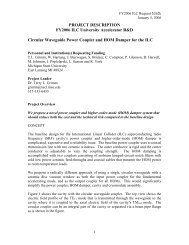order denying motions to suppress and dismiss - University of Illinois ...
order denying motions to suppress and dismiss - University of Illinois ...
order denying motions to suppress and dismiss - University of Illinois ...
- No tags were found...
You also want an ePaper? Increase the reach of your titles
YUMPU automatically turns print PDFs into web optimized ePapers that Google loves.
1<br />
2<br />
3<br />
4<br />
5<br />
6<br />
7<br />
8<br />
9<br />
10<br />
11<br />
12<br />
13<br />
14<br />
15<br />
16<br />
17<br />
18<br />
19<br />
20<br />
21<br />
22<br />
23<br />
24<br />
25<br />
26<br />
27<br />
28<br />
On Oc<strong>to</strong>ber 5, 2005, a gr<strong>and</strong> jury returned an Indictment against the<br />
Defendants. All <strong>of</strong> the Defendants are charged in Count 1 with Conspiracy To<br />
Commit Mail Fraud <strong>and</strong> Wire Fraud in violation <strong>of</strong> 18 U.S.C. §§371, 1341, <strong>and</strong><br />
1343. Defendant Dixie <strong>and</strong> Steven R<strong>and</strong>ock are also charged in Count 2 with<br />
Conspiracy To Launder Monetary Instruments in violation <strong>of</strong> 18 U.S.C. §1956(h).<br />
II. DISCUSSION<br />
A. March 24, 2005 “Search”<br />
“A [Fourth Amendment] ‘search’ occurs when an expectation <strong>of</strong> privacy<br />
that society is prepared <strong>to</strong> consider reasonable is infringed.” United States v.<br />
Jacobsen, 466 U.S. 109, 113, 104 S.Ct. 1652 (1984). A reasonable expectation <strong>of</strong><br />
privacy in the area searched is required. Katz v. United States, 389 U.S. 347, 360,<br />
88 S.Ct. 507 (1967). A reasonable expectation <strong>of</strong> privacy exists if one has an<br />
actual, subjective expectation <strong>of</strong> privacy <strong>and</strong> if the expectation is one society is<br />
prepared <strong>to</strong> recognize as reasonable. Id. at 361. The expectation <strong>of</strong> privacy in a<br />
commercial area is lower than that in a residential area. Minnesota v. Carter, 525<br />
U.S. 83, 119 S.Ct. 469, 474 (1998)(“[p]roperty used for commercial purposes is<br />
treated differently for Fourth Amendment purposes than residential property”);<br />
New York v. Burger, 482 U.S. 691, 700, 107 S.Ct. 2636 (1987)(“expectation <strong>of</strong><br />
privacy in commercial premises . . . is different from, <strong>and</strong> indeed less than, a<br />
similar expectation in an individual’s home”). It is the Defendants’ burden <strong>to</strong><br />
establish that under the <strong>to</strong>tality <strong>of</strong> the circumstances, they had a legitimate<br />
expectation <strong>of</strong> privacy in the hallway in which the boxes were located. Rawlings<br />
v. Kentucky, 448 U.S. 98, 104, 100 S.Ct. 2556 (1980).<br />
This court concludes that Defendants did not have a reasonable expectation<br />
<strong>of</strong> privacy in the subject hallway <strong>and</strong> hence, the discovery <strong>of</strong> the boxes on March<br />
24, 2005 by Agent Neirinckx did not constitute a “search” for Fourth Amendment<br />
ORDER DENYING MOTIONS<br />
TO SUPPRESS AND DISMISS - 5


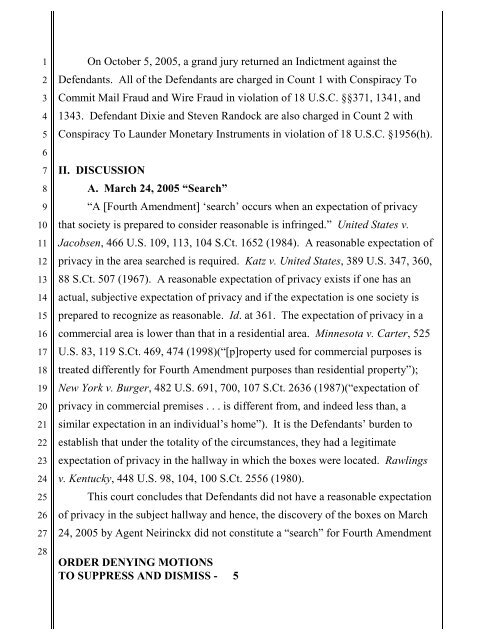
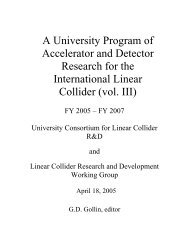
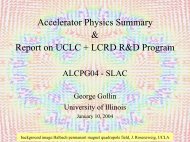
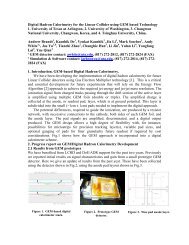
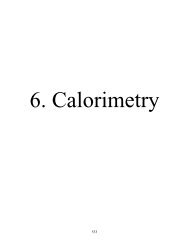
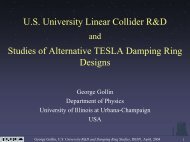
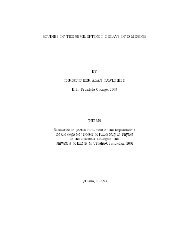
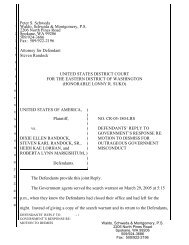
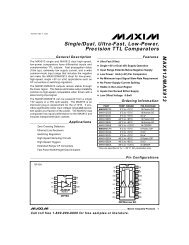
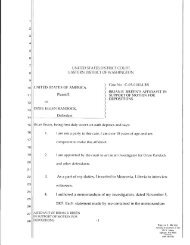
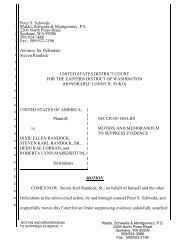
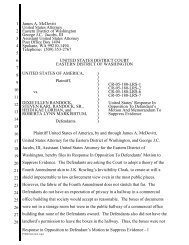
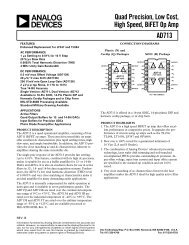
![Linear Collider [Accelerator] Overview](https://img.yumpu.com/33867705/1/190x143/linear-collider-accelerator-overview.jpg?quality=85)
